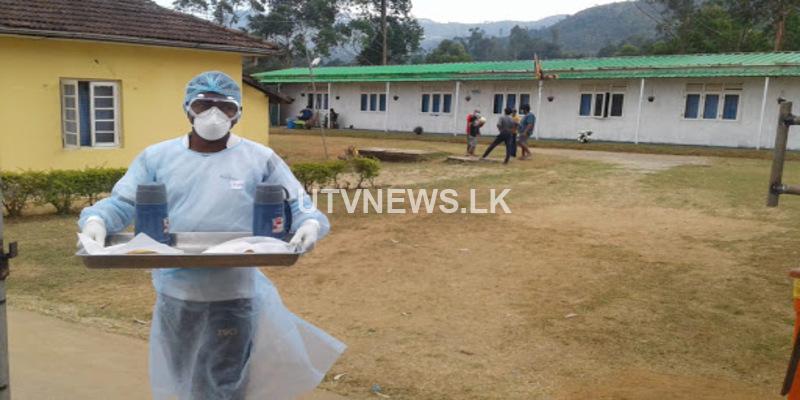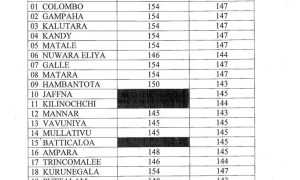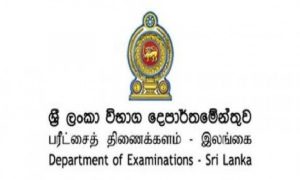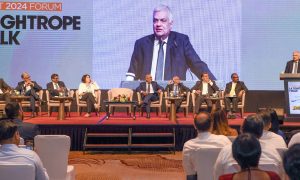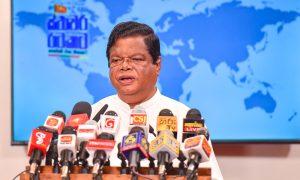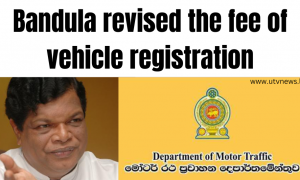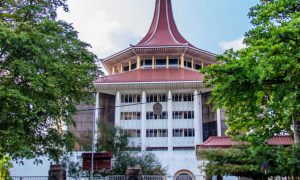(UTV | COLOMBO) – The Human Rights Commission of Sri Lanka (HRCSL) has issued a set of guidelines to the Health Ministry and the National Operation Centre for Prevention of COVID-19 Outbreak on regularising quarantine processes in the country.
The eight-point guidelines include the transparency in delegation of powers by the “Proper Authority” and vesting powers of testing on designated qualified personnel.
It also requests to list the places designated as quarantine centres and the designating authority and clarify the period of required quarantining.
The guidelines also propose to create a receipt system for quarantined persons including the reason for quarantine, the place they are being taken to and the length of isolation.
The guidelines include external scrutiny of quarantine centres, especially by the “proper authority” and prohibition of those handling quarantine from informing the media of the proposed quarantining efforts, exposing those being quarantined to public gaze as though they were offenders rather than unfortunate victims of a virulent virus.
“The Human Rights Commission of Sri Lanka commends all the efforts being made to curb the rapid spread of COVID-19 in the country. The Commission continues to recognise the need to restrict freedom of movement and liberty of people in the interests of public health and public order during an extraordinary health emergency such as that the country facing at present. The Commission has observed that a large number of persons have been subject to quarantine processes in view of the resurgence of the fear of spread of COVID-19 pandemic and has received a variety of complaints and expressions of concerns relating to the process,” the HRCSL said in a release.
The Commission is also of the view the hardships imposed by the quarantining process can be ameliorated by ensuring quarantined period is considered paid/ duty leave, and by ensuring financial or any other assistance to families of those in quarantine. It also requests the Grama Niladhari be immediately informed when a person is quarantined.
“In the circumstances where the vulnerable dependents in the families are left behind due to the quarantine process, the Grama Niladhari to ensure provision of all necessary support to vulnerable persons including alerting the proper authorities,” it added.
“The Commission welcomes confirmation that first contacts of the COVID-19 infected patients who were earlier sent to quarantine centres, will now be home quarantined. We are in agreement that quarantining persons to their home will be the best option.
“The Commission wishes to emphasize that nothing in these recommendations should be construed by any member of the public to act contrary to health guidelines issued by the public health authorities in regard to the COVID-19 pandemic or act in a manner that would be harmful to public health in general. The Commission also reiterates that placing the persons of first contact with COVID-19 patients under home quarantine will remove most of the concerns listed above but is issuing these recommendations in the event the government wishes to establish quarantine processes again in the future,” the release said.

